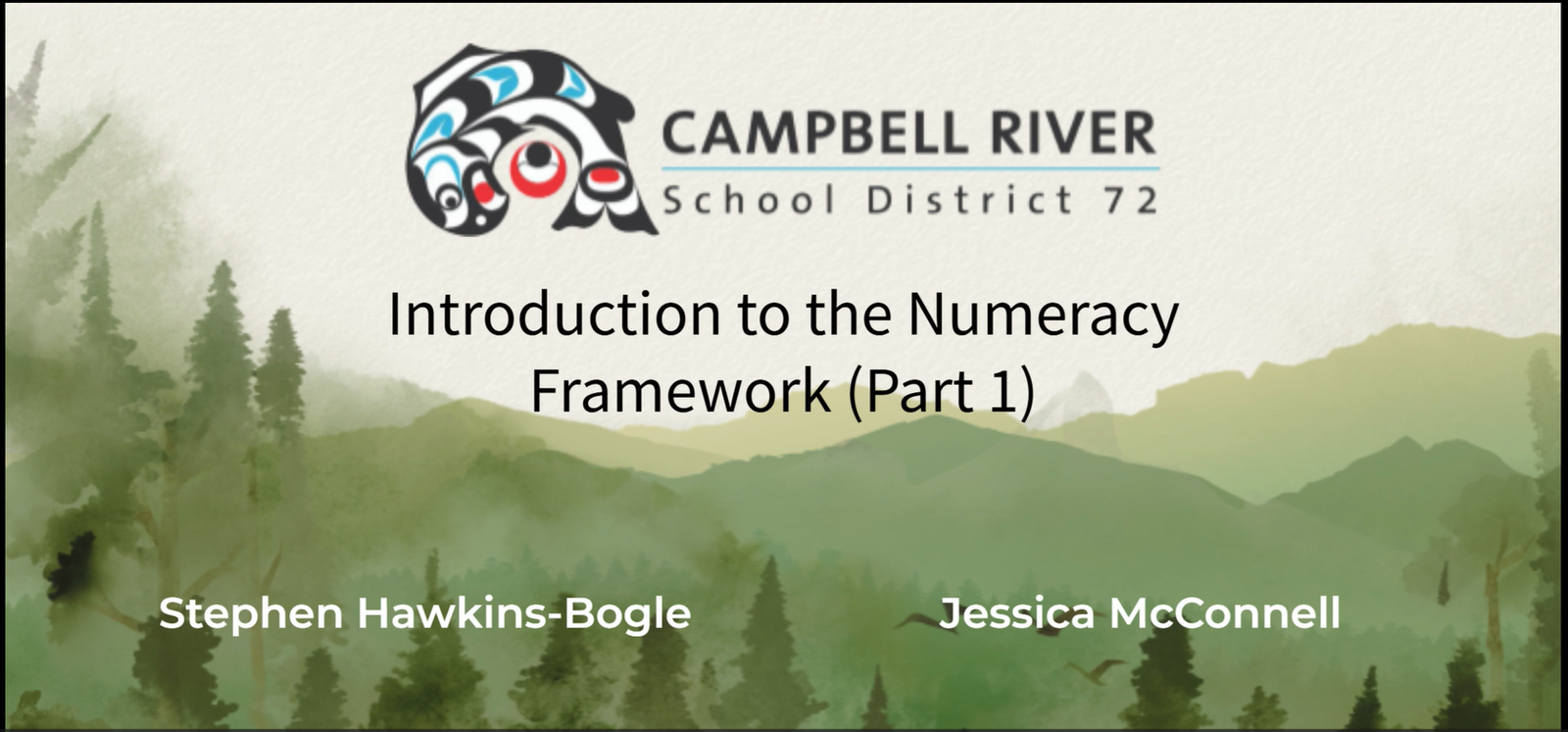VIII. Common Formative Assessment
 Instructional Video 1: Orientation to the Numeracy Framework & Common Formative Numeracy Assessment (CFNA) Instructional Video 1: Orientation to the Numeracy Framework & Common Formative Numeracy Assessment (CFNA) |  Instructional Video 2: CFNA Spreadsheet & Data Entry Basics Instructional Video 2: CFNA Spreadsheet & Data Entry Basics |
Addendum: Guidance for Primary Teachers (K/1/2)
Demo Video: Assessing Sorting in K/1
CFNA Keystone Document: All parts of the SD72 Common Formative Numeracy Assessment Package are linked in the PowerPoint below
French Immersion CFNA Keystone: The PowerPoint includes links to French versions of the CFNAs and all supporting documents
SD72 Common Formative Numeracy Assessment (CFNA)
This formative assessment package has been carefully developed with a view to assessing learners’ understanding of critical numeracy content and competencies. In addition to the CFNA for grades K to 9 students, a variety of instructional / fluency-building resources have been curated and/or developed by SD72 teachers for use throughout the year. The assessment package also includes recommendations for instructional routines related to the key competencies for each grade level. The CFNA can be administered near the beginning of the school year to activate and gage prior learning and set the focus for ongoing planning and support.
The individual assessments can be implemented in a variety of ways:
- As an initial formative assessment of student readiness for a new school year
- As a guide for setting areas of greatest priority, areas to reinforce, and areas for additional support
- To inform decisions about differentiation and targeted programming
- As a benchmark, throughout the year, to assess individual student progress
- As an informative tool to support progress reporting and transitions from year to year.
Individual assessments are meant to be done without a calculator. Universal math supports, like number lines and multiplication charts, are allowed.
Additional resources for teachers include: a data management tool (excel), a suggested scoring key, a data reflection template, and grade-specific instructional guidance.
The CFNA is designed to be one tool in a robust and varied numeracy program that supports the development of mathematical competencies. Prior to administration of any assessment, it is critical for teachers to foster relationships grounded in mutual respect and effective collaboration. The relational and collaborative aspects of effective numeracy and mathematical teaching and learning have broad ranging implications.
The CFNA was locally developed and adapted to the current BC Math curriculum, informed by the GSSD Math Screeners (with permission from Good Spirit School Division, Saskatchewan).
From the Pan-Canadian Assessment Program: Contextual Report on Student Achievement in Mathematics 2019: "A sense of belonging or connectedness at school was positively related to student outcomes in mathematics. The more strongly that students agreed with the statement “I liked school,” the higher their mathematics scores..." (PCAP, p.85)




